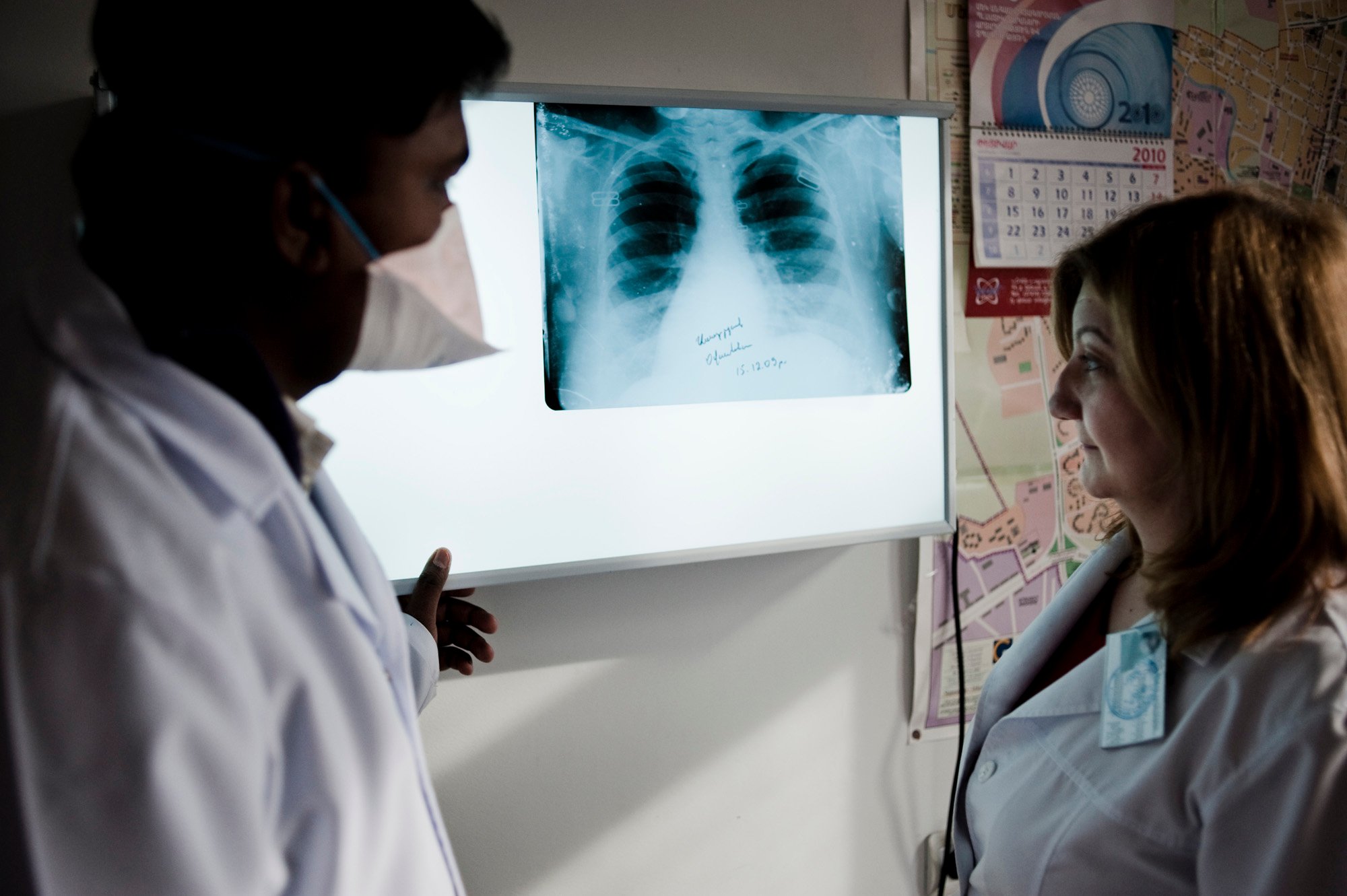Patient story: drug resistant tuberculosis in Armenia

Tavan, a cured patient helps others through tough DRTB treatment.
With a sturdy build and a firm handshake, today, Tevan is a picture of health, but around two years ago, the cured drug resistant tuberculosis (DRTB) patient was in extremely bad shape.
"One day at work I felt unwell and became very weak and could hardly get into a taxi to come home. For two days I was sick at home with a high temperature and then I started coughing up blood," said Tevan, who before he contracted drug resistant TB was a construction manager.
Before his diagnosis of DRTB he lost 20 kilograms and was eventually admitted to the programme supervised by MSF in the Armenian capital
After more than two years of grueling treatment, he is now fully recovered.
Drug resistant TB (DRTB) occurs when TB bacilli present in a patient are resistant to the firstline drugs that are most effective in combating the disease. Patients with regular TB can develop resistance if they do not complete the full course of drugs, or a person can be directly infected by drug resistant TB strain from an infected DRTB patient.
MSF provides the drugs - which can cost up to USD15,000 (around HKD117,000) per patient for a two-year course - supervises the treatment and gives patients psychological and social assistance.
Treatment for DRTB begins in the national TB centre in the capital, where patients stay until they are no longer transmitting the contagious disease, a period that usually take two months.
Following hospitalization, patients can return home and attend an ambulatory clinic six days per week to receive their doses of drugs to fight the air-borne disease.
Tavan, like most patients, had to take the toxic drugs for around two years, a task that requires immense strength of will and support from the MSF social work and psychological team.
The most recent drugs used to tackle DRTB were strong antibiotics developed in the 1940s, and the combination of pills, powders and injections frequently have severe mental and physical side effects.
"It was really difficult to take these drugs. I was unable to explain what was happening to me. I was unable to stand, I was unable to walk, I could not lie down and I felt nauseous," said 50-year-old Tevan.
If patients have pre-existing medical conditions, the severity of the side effects can become unbearable.
"If the patient started (treatment) with gastritis problems, at that time the patient feels more abdominal pain than the disease," said Dr Shahidul ISLAM, an MSF doctor working on the MSF project.
"In that case, sometimes the patient doesn’t want to take the drugs. They stop taking them because of the side effects," said Dr Shahid.
In the cohort of patients admitted to the MSF supported programme in 2007, around 21 per cent failed to complete the full course of treatment, with many saying it was the punishing drug regime that made them unable to continue.
While being treated and since being cured, Tavan does what he can to ensure as many patients as possible continue the course of drugs.
"During treatment I gave my experience, so they could see how I was recovering day by day, so they believe in the treatment and become stronger in their adherence," said Tavan.
"I always give good advice and told them my example, in what condition I was when I started treatment. At that time I felt half-dead, and now I am healthy. Some follow, some don’t."
Patient names have been changed.





Leave a Comment